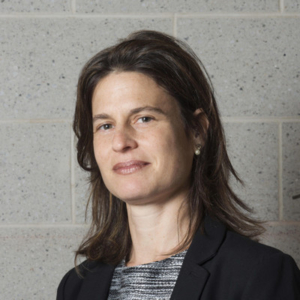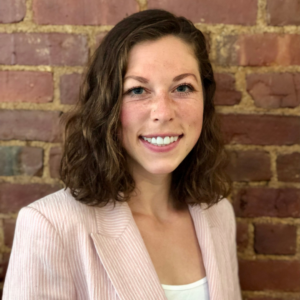Humentum organized a blind dating service for mentorship across it’s member organizations. Here was one experience.
From the perspective of a mentee
Nearly one year ago, I decided to go on a blind Zoom date with a stranger. I went into the call not knowing what to expect, with a mix of excitement and uncertainty swelling up inside me. The only thing I knew for sure was the woman’s name, that she worked for a non-profit based out of New York City, and the few details I could gather from LinkedIn and a quick Google search. This isn’t another catfish tale or a Tinder success story but rather a reflection on seeking mentorship outside of one’s organization. My ‘blind date’ was Tamar Renaud, assigned to be my mentor through a Humentum mentorship program. As it turns out, she guided me through one of the most challenging seasons of my career in HIV prevention advocacy so far, and we still maintain a meaningful relationship today.
Shortly after meeting Tamar, I found myself in a state of overwhelm. My manager and director were both on maternity leave at a particularly busy time in the project year. While they had left helpful plans for their leave and colleagues were supportive and patient with me, trying to do it all placed me on a path to burnout. Thankfully, Tamar helped me recognize the value of prioritization and offered tools to implement this skill. It might sound obvious that prioritization is essential in the workplace, but it’s easy to fall into treating everything as urgent.
Tamar recommended the Eisenhower Matrix to avoid this trap. Using this tool as a guide, I began taking stock of my to-do list at the start of each workday. This included identifying which tasks required immediate attention (urgent and important), which should be scheduled for a later time in the day or week (not urgent but important) and those that could be done when I was at low energy points in my day (urgent but not important). It took a while to feel at ease letting an email linger unread while I focused on a critical task but doing so increased my effectiveness and provided greater balance. I no longer felt overwhelmed signing off for the day with some items unfinished, knowing that the truly urgent work had been done, and I had time set aside for work that was important to long-term goals. In this instance, I appreciated having an external mentor who provided a safe space to discuss challenges and offered new tools to solve these challenges.
Having an external mentor has also pushed me to think big picture. Identifying my values has been a transformative example of this. With Tamar’s guidance, I outlined my top three career values: mission-driven work, work/life balance and opportunities for growth (e.g., learning and leadership). Acknowledging these values as vital to my career success and happiness has helped me set goals that align with my values. Something Tamar wrote to me that resonated so deeply was, “be proactive about your time and remember to fit in things that bring you joy. It’s worth it”. Encouraged by this sentiment and our values discussions, I have prioritized involvement in work around the inclusion of pregnant and breastfeeding women in research—an issue I feel passionate about and offers me plenty to learn.
I am incredibly grateful to work for a supportive organization, and still, mentorship outside my organization has been enjoyable and beneficial.
From the perspective of a mentor
When Humentum put out the call for mentors, I knew it was time to step up. I have had the good fortune of a varied public health career working in small and large non-profits, the U.N. (UNAIDS and UNICEF), the New York City Department of Health and Mental Hygiene, and a large health care system (NYU-Lutheran). I have interacted with people from diverse backgrounds and professions, with an eye to setting up new pathways, working in partnership, and building trust.
Whether it has been promoting adolescent rights, founding an NGO, or running a large post-hurricane crisis counseling program, I have adopted agile approaches to team-based problem solving. As COO of Vital Strategies, a global public health non-profit, I hired, onboarded and led the operational team. We introduced policies and procedures that enabled and sustained rapid growth over five years: from $60M to $172M in annual expenditure and 65 to 400 employees. I have overseen all operational areas, including Global Operations, Security, Facilities, HR and IT, and worked closely alongside the CFO.
I learned the importance of hiring well, supporting employees to do their best work, and establishing clear success metrics. I have learned that aligning the hopes of our staff with the expectations of donors demands political sophistication and empathy. I also learned that building a strong organizational culture, especially during the stressors of the COVID pandemic and remote work, and increasing focus on diversity, equity, and inclusion, requires special attention to employees’ needs, aspirations, and a clear understanding of their contribution to the organization’s success.
While I had not formally mentored before outside of supervisory relationships, I had learned from bosses, colleagues, and coaches and gathered a panoply of strategic and tactical tools. It was time to share. I expected to share a feminist approach to career development with the reality of vulnerable moments that I went through as a woman. Working with Breanne led me to revisit a quarter-century (yikes!) of learnings on the importance of relationships and humility.
Mentorship is a bit like therapy. The mentee does the hard work. Breanne told me what she found stimulating in her work and what was challenging. She did homework assignments on what mattered most to her and made her feel valued. When we’d meet, she’d share her analysis; I would nod and ask questions. Like therapy, mentoring is time out. Time away from the rapid charge of the day-to-day routine. Time to reflect. I encouraged Breanne to think beyond her first interpretation, explore her aspirations, identify activities that gave her joy, and ask for more time on what she loved. She did. And her work changed.
As an extrovert during months of COVID shut down, having the chance to meet and share an intimate and vulnerable zoom space with Breanne was in itself therapeutic. Breanne and I decided to extend our mentorship meetings for six months. Mentoring someone is not just an opportunity to help another person develop but also a time for me as a mentor to reflect on my own professional development.
Three tips for a new mentor:
- At the beginning of the mentorship period, ask your mentee to write down three goals for what they want to learn; keep checking in on these goals.
- Assign homework (if the mentee is willing). It can help to give the mentee time to think through difficult questions.
- Beware of advice. While coaching may include giving advice and sharing tools, the most productive sessions are those where, with some key questions, the mentee can chart their course of action.


